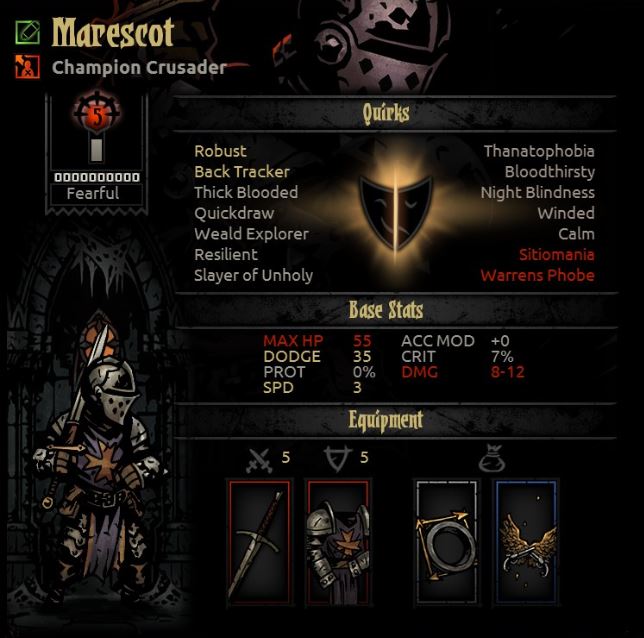In the upcoming Episode 106 there is some mention of “shades of gray” not just meaning the darker end of the spectrum. And then today I ran across an article titled Democracy and the Demonization of the Good by Richard Beck. While the article is primarily inspired by thoughts about political discourse, the combination of the “light end of the spectrum” and that article has gotten me thinking about virtue and the ways in which good people can come into conflict.
Sometimes conflict happens because one side is evil, or both of them are. The classic examples of fighting Nazis, hunting serial killers, and tracking down thieves and crooked businessmen or politicians all apply, as do the ones of war in the underworld, either figuratively (as you’d see in a campaign with rival gangs fighting) or, heck, even literally in some games. But oftentimes, it’s not because one party or the other is monstrous. Some of the most awful and brutal conflicts in all of history were fought, not because of cruelty or wanton malice, but because of obligations, bad information, and poor communications. World War One, arguably the most horrific and brutal conflict in all of human history, was fought not over clear-cut moral grounds, but because of obligations, strategic calculations, poor communication technology, and a host of other factors that had nothing to do with evil at the start. There would be plenty of evil after it started, but aside from a single assassination that started the dominoes falling, there’s not a lot one can look at in the lead-up to the war with a terribly condemning eye if one is at all interested in being fair, especially with the distance that history provides. (Hardcore History and Extra History each did their own excellent muti-part series on WWI. I recommend consuming both.)
A bit closer to home, the Church in the US in particular is divided on a number of contentious issues, which has left sincere people of faith on both sides struggling to reconcile some of the differences that have come to the fore, and in fact if you look at Church history, this is nothing new. Religious schisms and conflicts are littered throughout the history of the church. We touched on one of the more dramatic events stemming from this in out Historical Heresies series when we talked about the First Council of Nicaea.
This is a contentious topic and one that gets people angry in a hurry. It can be difficult just to talk about in a civil way. Why would anyone want to game about this?
*ahem*
The value of myth is that it takes all the things you know and restores to them the rich significance which has been hidden by the veil of familiarity. -C.S. Lewis
Okay, so C.S. Lewis has provided the “why” but what about the “how?”
It isn’t hard to imagine how evil winds up in fights. Caring either only for itself or for some sinister goal, evil has nothing to lose from conflict and is perfectly happy to escalate matters as far as is necessary for it to triumph, consequences be hanged. Good, on the other hand, usually only gets mixed up in fights when something important is threatened, but that’s not usually the entirety of it. If you want to bring two good people or groups into conflict, here’s at least one way it can start.
- Good, as previously-mentioned, only tends to get involved in conflicts to protect or preserve something important. For example: in our D&D game, the party is planning to confront a hag who has struck a bargain that will cost a young couple their firstborn. This is a major threat to innocent life, something that’s definitely worth preserving. So to have a seed of conflict at all, you need to create a situation that threatens something one of your good sides cares about.
- Once you’ve accomplished that, you’re going to need to set it up so the only solution that the side feeling threatened can see to their problem will imperil something important to another good group. Side note: using Moral Foundations Theory can help keep this from feeling too forced or cheesy. If one side’s Care actions threaten another side’s Purity ones or vice versa… …you’ll have a conflict that will feel very familiar to anyone who pays attention to politics.
- At some point, someone is going to have to assume the worst in someone on the other side, and then they’re going to have to do something that makes the other side assume the worst too.
- Someone needs to escalate.
- Congratulations, you have a conflict.
And this is about the point at which the player characters should probably come in. To use this type of conflict to its fullest potential, it’s probably best to make the sides roughly equal in how sympathetic they are. The conflict will probably be thorny, resistant to easy solutions, and exhausting to resolve if the GM has done their homework, but if the PC group manages to pull it off, the resolution will be extremely satisfying. It is worth noting that all of these same traits mean this is probably best as a sometimes thing rather than a constant theme in your games, but if what we’ve said for four-plus years about games being good moral practice is at all something you agree with, this seems like a particularly good type of practice to be getting these days.
Blessed are the peacemakers, for they will be called children of God. – Matthew 5:9
This week’s featured image is from Agelshaxe and is used under Creative Commons.




